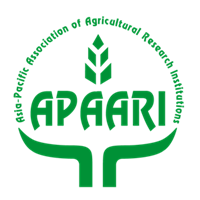Building Knowledge Systems in Agriculture: Five Key Areas for Mobilising the Potential of Extension and Advisory Services
There is renewed attention on the importance of advisory services and extension in rural development processes. This paper, based on the publication ‘Mobilizing the potential of rural and agricultural extension', focuses on five opportunities to mobilise the potential of extension and advisory services. The five areas are: (1) focusing on best-fit approaches; (2) embracing pluralism; (3) using participatory approaches; (4) developing capacity; and (5) ensuring long-term institutional support.
Related Resources

Development Challenges of Indian Agriculture
This compendium consists of ten sector papers commissioned by FAO in 2008, as a precursor to the white paper and nally leading to the development of the FAO-India National Medium Term Priority Framework (NMTPF). These papers are intended to be...

Report on Prioritization of Demand-driven Agricultural Research for Development in Bangladesh
The International Food Policy Research Institute (IFPRI) partnered with the Asia-Pacific Association of Agricultural Research Institutions (APAARI) in 2011 to conduct a series of policy dialogues on the prioritization of demand-driven agricultural research for development in South Asia. Dialogues were conducted with...

Emerging Patterns in the Capacity Development Puzzle
Many capacity development (CD) programs and processes aim at long‐term sustainable change, which depends on seeing many smaller changes in at times almost invisible fields (rules, incentives, behaviours, power, coordination etc.). Yet, most evaluation processes of CD tend to focus...
Towards optimal coordination of the Chilean Agricultural Innovation System: Design for a MINAGRI Agricultural Innovation Coordination Unit
This is a study for developing long-term strategy for Chilean Innovation System
Status of Agricultural Extension and Rural Advisory Services Worldwide Summary Report
The International Food Policy Research Institute (IFPRI), working in collaboration with the University of Illinois (UIUC), FAO, and the Global Forum for Rural Advisory Services (GFRAS), developed the Worldwide Extension Study database as part of the assessment of the status...


